Intel Core i9-13900K and i5-13600K Review: Raptor Lake Brings More Bite
by Gavin Bonshor on October 20, 2022 9:00 AM ESTGaming Performance: 1440p
In our Ryzen 7000 series review, we saw users commenting about testing games for CPU reviews at 1440p, so we have duly obliged here. Those interested in 1440p performance with minimal image quality – particularly the esports crowd – will be glad to know that we will be testing at this resolution going forward into 2023 and beyond.
Civilization VI
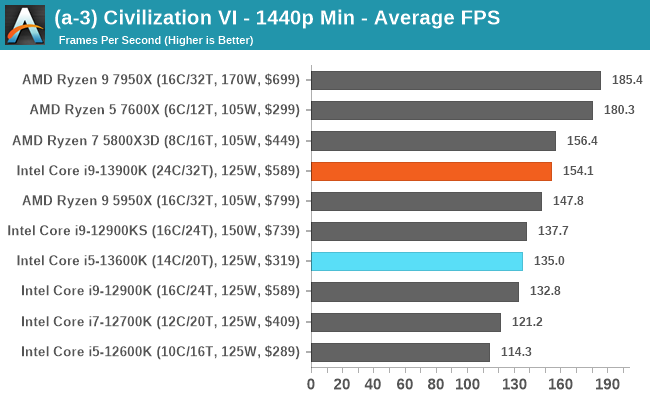
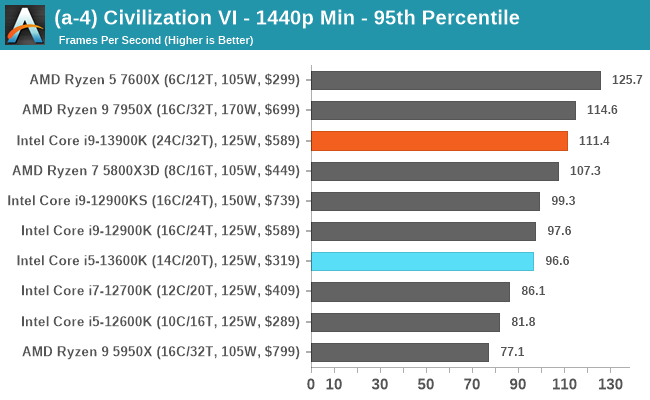
Borderlands 3
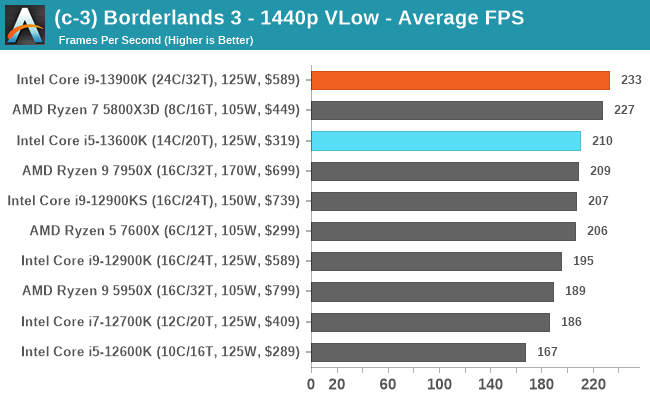
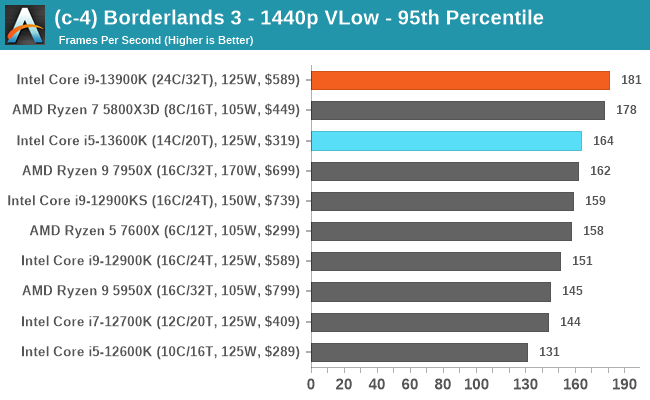
Grand Theft Auto V
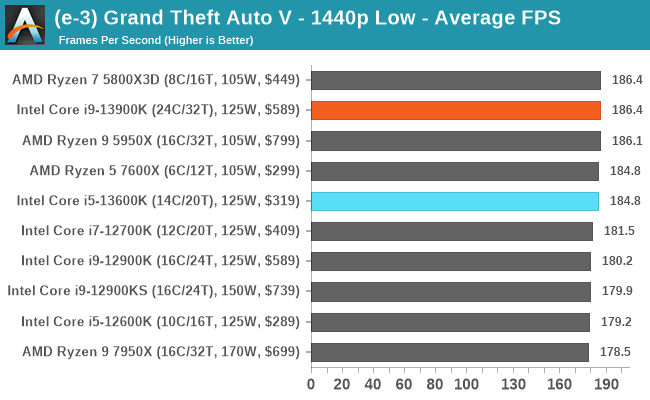
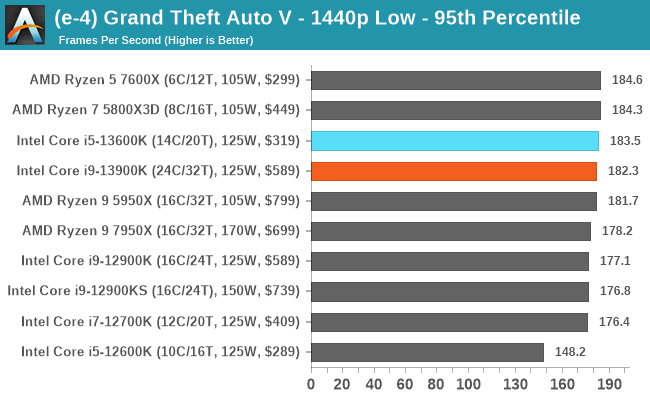
Red Dead Redemption 2
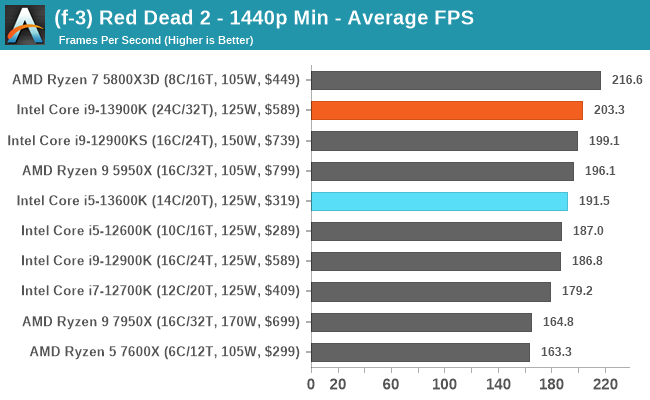
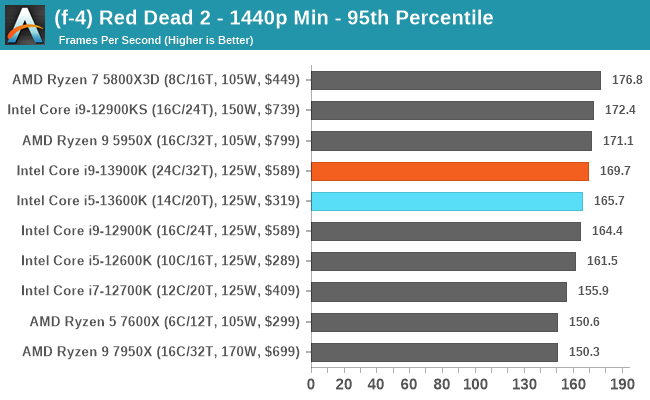
F1 2022
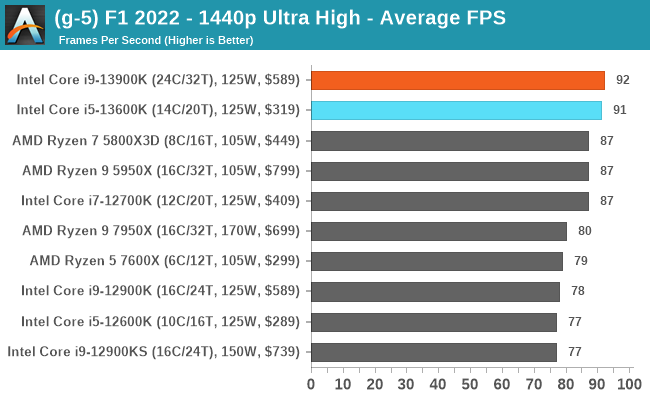
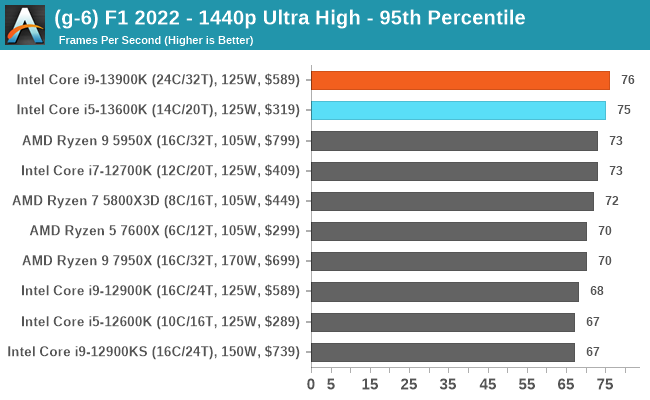
Hitman 3
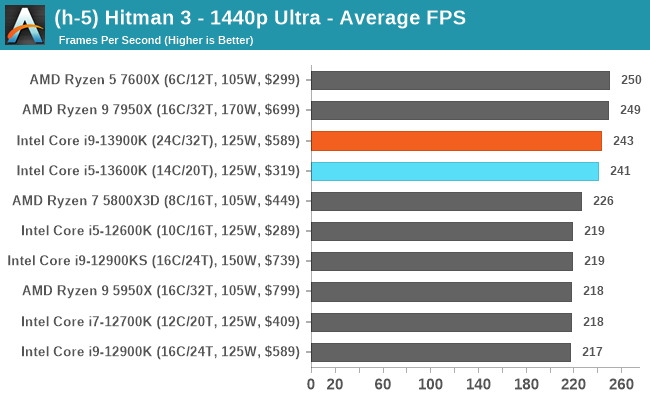
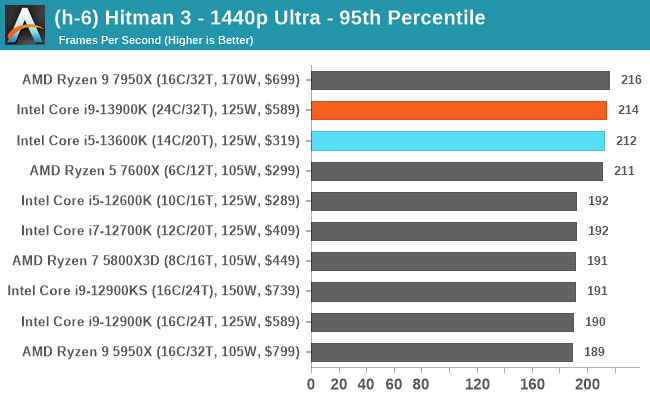
Total War: Warhammer 3
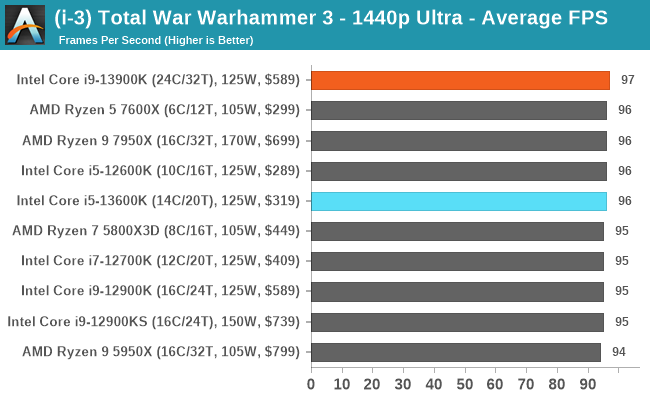
We noticed some discrepancies in our Cyberpunk 2077 testing at 1440p and 4K; we will publish these results once we identify the issue.
The first thing to note in our 1440p testing is that in Civ VI, and throughout, we've seen dominance from AMD's Zen 4 core here. I've retested numerous times to confirm, and they are correct. It's also worth noting that again, the Ryzen 7 5800X3D performs well in some of the titles, especially Red Dead Redemption 2, Grand Theft Auto V, and in Borderlands 3. If a title can utilize all of that 3D V-Cache, then the 5800X3D excels, even against the latest and great Zen 4 and Raptor Lake chips.
Throughout our 1440p testing, the latest Intel 13th Generation core has performed well, and although it gets pipped by the Core i9-12900KS in some of the tests, most of the processors are competitive in titles such as F1 2022, and Grand Theft Auto V.










169 Comments
View All Comments
adenta180 - Friday, June 23, 2023 - link
Did you guys ever get to the bottom of this SPECint rate GCC regression on 13900K? ReplyAvalon - Friday, October 21, 2022 - link
I think it's starting to become a little disingenuous to list the default TDP in the benchmarks, when it's become increasingly obvious over the past few generations that Intel chips run nowhere in the stratosphere of those TDPs.When you see a "125W" $589 chip virtually tied with a "170W" $699 chip it makes it seem like Intel is a no brainer. Might be time to start putting actual power draw in each of the tests in there, or simply leave stock TDP out, because listing a Core i9 at "125W" when it's running 50-100W higher than an equivalent AMD chip doesn't make much sense any longer. Reply
WannaBeOCer - Friday, October 21, 2022 - link
Did you even read the article? Intel advertises the 13900k as a 253w chip. It drew 32% more than it advertised while AMD advertises its 7950x as a 170w and it drew 30% more than they advertised. On all of Intel’s slides“Processor Base Power
125 W
Maximum Turbo Power
253 W” Reply
bcortens - Saturday, October 22, 2022 - link
Doesn’t matter if they advertise it. The charts are misleading because the W number at the left of the chart has nothing to do with the power consumed to get the performance indicated in the chart.They should really just leave the W number off or show a measured average W required to complete the test. Then the number would have meaning. As it stands, for the purposes of the graph, the number doesn’t mean much. Reply
Avalon - Friday, October 21, 2022 - link
And, to be fair to Intel, why are some of the IGP gaming benchmarks only showing the 12th and 13th gen Intel vs AMD APUs? There's really nothing to be gleaned from this; of course APUs will be faster in IGP tests. If you can't do like for like, then either just publish the Intel scores or don't publish at all. ReplyIketh - Friday, October 21, 2022 - link
In your closing comments about power consumption, I was reminded about the AMD article that compared the performance difference between 230W and 65W. I think you should also mention that in this article. I'm holding out for AMD mobile parts. Those laptops will be nice. ReplyIketh - Friday, October 21, 2022 - link
125W on Intel 7 process, when it's actually 325W on 10nm lmao... pure marketing ReplyWannaBeOCer - Friday, October 21, 2022 - link
Did you even read the article? Intel advertises the 13900k as a 253w chip. It drew 32% more than it advertised while AMD advertises its 7950x as a 170w and it drew 30% more than they advertised. On all of Intel’s slides“Processor Base Power
125 W
Maximum Turbo Power
253 W” Reply
bcortens - Saturday, October 22, 2022 - link
Reviews shouldn’t care about the advertised power, or what it says in the bios when you set the “limit” to 65 watts, reviews should actually measure and report the real power draw.We don’t read reviews to read intel and amd marketing numbers, we want to know the real numbers for a given workload Reply
Iketh - Sunday, October 23, 2022 - link
what on earth does that have to do with my statement Reply